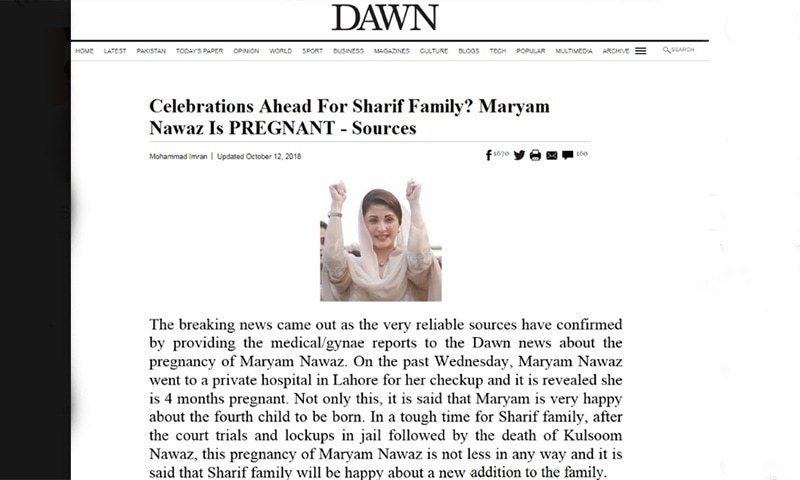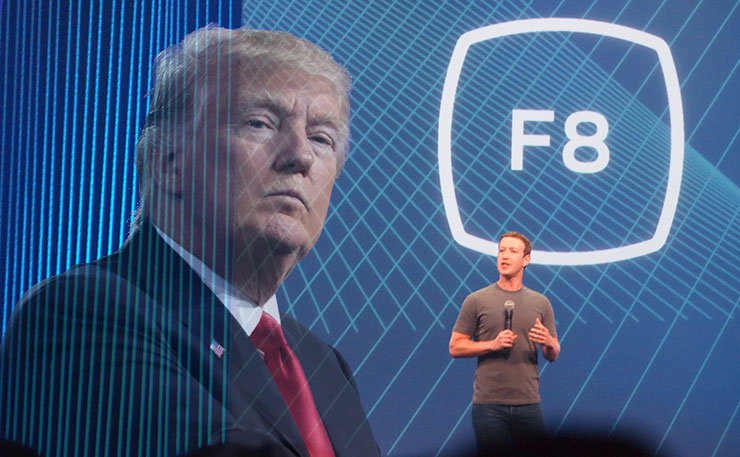
The century we all are living in is colloquially termed the century of information. It indeed has proved itself to be an era in which information from one part of the world is transmitted within milliseconds to the other side of the globe, by clicking a single button. This fast transfer of information has had a very significant impact on the way the world has changed.
One such example is of Mohamed Bouazizi[1], the Tunisian street vendor whose self-immolation in 2010 set off the Arab Spring uprisings. According to testimonies of other vendors present at the scene, a council inspector named Ms Hamdy was confiscating Mohamed Bouazizi’s fruit, and when Mr Bouazizi resisted, she slapped him in the face in return and asked her colleagues to beat him. On the very same day, Mr Bouazizi, embarrassed and humiliated by the treatment at the hands of state authorities, drenched himself in paint thinner and lit his body on fire. He died on January 4. A video of the gentleman setting himself on fire went viral over the social media sites and this proved to be the first step in the long series of putsches known as the Arab Spring. Decades-old monarchies and dictatorships were overthrown by the people in the coming years, and at the center of it all was the power of social media; a tool that proved to be mightier than tanks and nuclear missiles.

During my childhood, while discussing philosophy my late uncle once told me that, “an army of philosophers is insufficient to turn a lie into the truth”. I strongly believed in this notion until I came across social media and the books of Joseph Goebbels. During Hitler’s reign of fascistic terror in Germany, Joseph Goebbels, the Reich Minister of Propaganda of Nazi Germany from 1933 to 1945, said, “It would not be impossible to prove with sufficient repetition and a psychological understanding of the people concerned that a square is, in fact, a circle. They are mere words, and words can be molded until they clothe ideas and disguise.”[2] But the reader might be compelled to ask as to what is the relevance of the aforementioned saying, product of a long-gone era and an obsolete empire, in the 21st century - the century of the free flow of information and knowledge.
It has been 14 years since the invention of Facebook and 12 years since the creation of micro-blogging website Twitter. With a large number of people posting and sharing content on various social media sites, it has become too hard, and in some cases impossible, to separate facts from fiction. Most of the data that is shared over these sites is neither fact checked nor are any statistics or references provided to cross-check the claims. The trend of spreading fake news items over recent times has surged drastically.
How easily can a fake news item get viral over the social networking sites can be gauged by a video of an Imran Khan look-alike driving a Suzuki Mehran car! Numerous Pakistani social media users, mostly supporters of the ruling party of Imran Khan, Pakistan Tehreek-e-Insaf, went on a praise-spree of the country’s premier. Some started drawing a comparison between Imran Khan and the second caliph of Islamic Empire, while others titled him as the “Bravest Prime Minister on Earth”, apparently due to the absence of security vehicles around the vehicle that the person in the video was recorded driving. The cries of “Naya Pakistan Zindabad”, literally “Hail the New Pakistan”, echoed all over the social media. This all came to an end when the look-alike himself came forward and issued a clarification that it was him, not the Prime Minister, who was filmed driving that car.
Watch Imran Khan look-alike driving Mehran
Another fake story about Maryam Nawaz Sharif, the daughter of deposed Premier of Pakistan, Mr Nawaz Sharif, went viral. The fake screenshot, doctored to pose as a Dawn.com article was widely circulated around all sections of social media. The post attempted to misinform the public by claiming that the PML-N leader was expecting a child. Consequently, the news website had to post a clarification story on the issue, along with a detailed method[3] as to how a fake screenshot can be identified.

In order to battle the rise of fake news, the Ministry of Information, Pakistan, had to launch an official Twitter handle[4]. But the most surreal thing happened on the very first day when the official “Fake News Buster” handle had to tweet about another account that was trying to impersonate as official government Fake News Buster handle. Things haven’t gone out of hand only in Pakistan. The vicious cycle of deception and deceit has become a universal phenomenon.
Recently, Cambridge Analytica, a data analytics firm that worked with Donald Trump’s election team, headed at the time by Trump’s key adviser Steve Bannon[5], was called out for using the personal information of millions of Facebook users, without their prior consent. The data was used to build a mechanism that profiled US voters, to target them with personalized political advertisements. Using intimate information of people to bombard their Facebook walls with personalized propaganda material was a gross violation of the people’s right to Freedom of choice. This was one of the biggest data breaches in the history of Facebook.

These stories of deliberate propagation of fake news and misinformation seem quite harmless when compared to the things that have happened in India. In Jaipur, the capital city of India’s Rajasthan, WhatsApp, the messaging service of Facebook, is running a campaign, through performing arts, to spread awareness about Fake News. WhatsApp has 200 million users in India, more than anywhere in the world. It has also been reported by various media outlets that fake news has triggered numerous lynching events[6] in the country. WhatsApp’s efforts to battle the rise of fake news isn’t limited to Skits. It has also launched numerous newspaper and radio campaigns. To efficiently battle this menace, they were also forced to put a limit on the forward message option present in the app.
It has been more than a decade since the death of Algerian-French philosopher Jacque Derrida, but it is sad that his works have remained as relevant, in some cases more relevant, compared to the time in which they were originally written. The triangle of misinformation, propaganda, and fake news can prove fatal for the natural cycle of a society’s development. Time has come that the works of Derrida be exhumed from the dusty shelves of public libraries and studied as part of the defense training to immune one’s mind from catching the deadly disease of Fake News. The slogan of this century ought to be, ‘People of the World, Deconstruct.’
[1] http://www.nytimes.com/2011/01/15/world/africa/15tunis.html
[2] Propaganda and Persuasion, pg. 230, SAGE Publications
[3] https://www.dawn.com/news/1438768
[4] https://twitter.com/FakeNews_Buster
[5] https://www.theguardian.com/news/2018/mar/17/cambridge-analytica-facebook-influence-us-election
[6] https://www.reuters.com/article/us-india-killings-whatsapp/whatsapp-hits-the-road-with-skits-to-stamp-out-fake-news-in-india-idUSKCN1MM0RI
One such example is of Mohamed Bouazizi[1], the Tunisian street vendor whose self-immolation in 2010 set off the Arab Spring uprisings. According to testimonies of other vendors present at the scene, a council inspector named Ms Hamdy was confiscating Mohamed Bouazizi’s fruit, and when Mr Bouazizi resisted, she slapped him in the face in return and asked her colleagues to beat him. On the very same day, Mr Bouazizi, embarrassed and humiliated by the treatment at the hands of state authorities, drenched himself in paint thinner and lit his body on fire. He died on January 4. A video of the gentleman setting himself on fire went viral over the social media sites and this proved to be the first step in the long series of putsches known as the Arab Spring. Decades-old monarchies and dictatorships were overthrown by the people in the coming years, and at the center of it all was the power of social media; a tool that proved to be mightier than tanks and nuclear missiles.

During my childhood, while discussing philosophy my late uncle once told me that, “an army of philosophers is insufficient to turn a lie into the truth”. I strongly believed in this notion until I came across social media and the books of Joseph Goebbels. During Hitler’s reign of fascistic terror in Germany, Joseph Goebbels, the Reich Minister of Propaganda of Nazi Germany from 1933 to 1945, said, “It would not be impossible to prove with sufficient repetition and a psychological understanding of the people concerned that a square is, in fact, a circle. They are mere words, and words can be molded until they clothe ideas and disguise.”[2] But the reader might be compelled to ask as to what is the relevance of the aforementioned saying, product of a long-gone era and an obsolete empire, in the 21st century - the century of the free flow of information and knowledge.
It has been 14 years since the invention of Facebook and 12 years since the creation of micro-blogging website Twitter. With a large number of people posting and sharing content on various social media sites, it has become too hard, and in some cases impossible, to separate facts from fiction. Most of the data that is shared over these sites is neither fact checked nor are any statistics or references provided to cross-check the claims. The trend of spreading fake news items over recent times has surged drastically.
How easily can a fake news item get viral over the social networking sites can be gauged by a video of an Imran Khan look-alike driving a Suzuki Mehran car! Numerous Pakistani social media users, mostly supporters of the ruling party of Imran Khan, Pakistan Tehreek-e-Insaf, went on a praise-spree of the country’s premier. Some started drawing a comparison between Imran Khan and the second caliph of Islamic Empire, while others titled him as the “Bravest Prime Minister on Earth”, apparently due to the absence of security vehicles around the vehicle that the person in the video was recorded driving. The cries of “Naya Pakistan Zindabad”, literally “Hail the New Pakistan”, echoed all over the social media. This all came to an end when the look-alike himself came forward and issued a clarification that it was him, not the Prime Minister, who was filmed driving that car.
Watch Imran Khan look-alike driving Mehran
Another fake story about Maryam Nawaz Sharif, the daughter of deposed Premier of Pakistan, Mr Nawaz Sharif, went viral. The fake screenshot, doctored to pose as a Dawn.com article was widely circulated around all sections of social media. The post attempted to misinform the public by claiming that the PML-N leader was expecting a child. Consequently, the news website had to post a clarification story on the issue, along with a detailed method[3] as to how a fake screenshot can be identified.

Screenshot of the fake news story circulating on the social media
In order to battle the rise of fake news, the Ministry of Information, Pakistan, had to launch an official Twitter handle[4]. But the most surreal thing happened on the very first day when the official “Fake News Buster” handle had to tweet about another account that was trying to impersonate as official government Fake News Buster handle. Things haven’t gone out of hand only in Pakistan. The vicious cycle of deception and deceit has become a universal phenomenon.
Recently, Cambridge Analytica, a data analytics firm that worked with Donald Trump’s election team, headed at the time by Trump’s key adviser Steve Bannon[5], was called out for using the personal information of millions of Facebook users, without their prior consent. The data was used to build a mechanism that profiled US voters, to target them with personalized political advertisements. Using intimate information of people to bombard their Facebook walls with personalized propaganda material was a gross violation of the people’s right to Freedom of choice. This was one of the biggest data breaches in the history of Facebook.

These stories of deliberate propagation of fake news and misinformation seem quite harmless when compared to the things that have happened in India. In Jaipur, the capital city of India’s Rajasthan, WhatsApp, the messaging service of Facebook, is running a campaign, through performing arts, to spread awareness about Fake News. WhatsApp has 200 million users in India, more than anywhere in the world. It has also been reported by various media outlets that fake news has triggered numerous lynching events[6] in the country. WhatsApp’s efforts to battle the rise of fake news isn’t limited to Skits. It has also launched numerous newspaper and radio campaigns. To efficiently battle this menace, they were also forced to put a limit on the forward message option present in the app.
It has been more than a decade since the death of Algerian-French philosopher Jacque Derrida, but it is sad that his works have remained as relevant, in some cases more relevant, compared to the time in which they were originally written. The triangle of misinformation, propaganda, and fake news can prove fatal for the natural cycle of a society’s development. Time has come that the works of Derrida be exhumed from the dusty shelves of public libraries and studied as part of the defense training to immune one’s mind from catching the deadly disease of Fake News. The slogan of this century ought to be, ‘People of the World, Deconstruct.’
[1] http://www.nytimes.com/2011/01/15/world/africa/15tunis.html
[2] Propaganda and Persuasion, pg. 230, SAGE Publications
[3] https://www.dawn.com/news/1438768
[4] https://twitter.com/FakeNews_Buster
[5] https://www.theguardian.com/news/2018/mar/17/cambridge-analytica-facebook-influence-us-election
[6] https://www.reuters.com/article/us-india-killings-whatsapp/whatsapp-hits-the-road-with-skits-to-stamp-out-fake-news-in-india-idUSKCN1MM0RI
